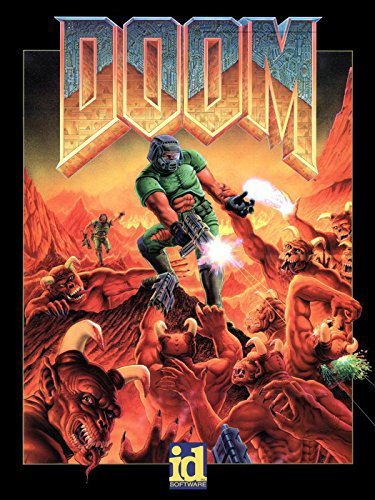Twenty-five years ago this week, Doom, the original first-person shooter game, debuted.
And like millions of other Americans, my older brother played it often. My brother is seven years old than me, so since I was too young to really play the game, I’d sit beside him as he played. We’d insert the floppy disk into the computer tower and wait anxiously for it to load. I watched every move he made, filled with excitement.
It was one of the first times as a child I really considered the idea of monstrous demons or hellish places, because they had come to life on a computer screen. Even though I wasn’t physically playing Doom because I was so young, sitting next to my brother, watching him play, ushered us into another world. It was a world of good and evil, and we were there on a mission. Perhaps the experience also played into my later zeal for Christian salvation, especially when it came to the people I loved.
Doom fit with much of Christianity’s concept of hell, pictured by the descriptions of Dante’s “Divine Comedy”: layers of hell in which people are punished according to their mortal sins.
As Christians, we must be the ones figuratively holding the guns, destroying evil, all the while using our Bibles to save the lost. We must be the ones changing the world by eliminating the threat of an eternity in hell.
In the world of Doom, my brother imagined himself a killer, and I imagined myself a killer, both with a holy mission to destroy evil.
I don’t play video games anymore, but my brother and I played for a long time throughout our adolescent and teenage years. The memory of these games still sticks with me, so much so that when I Googled a video of Doom, the exact same feelings I’d experienced as a young girl came rushing back: adrenaline mixed with high anxiety.
“Playing video games mimics the kinds of sensory assaults humans are programmed to associate with danger,” she wrote in a Psychology Today piece titled “This is Your Child’s Brain on Video Games.” “When the brain senses danger, primitive survival mechanisms swiftly kick in to provide protection from harm.”
Playing Doom with my brother produced those same kinds of fight or flight responses, ones that later followed me into the church sanctuary every time I heard a pastor preach on the importance of saving the world from imminent hell.
Perhaps without realizing it, I imagined myself there with a gun, shooting down demons and those who guarded them, just in time for the apocalypse.
Later, I attended a musical camp called Armor, based on a passage in the Book of Ephesians that counsels Christians to put on the full armor of God. As campers, we considered ourselves warriors, ready to take down the enemy. That same language is taught often in the church, preached from the pulpit as a call to stand against the flames of hell.
“For our struggle is not against flesh and blood,” the author of Ephesians warns us, “but against the rulers, against the authorities, against the powers of this dark world and against the spiritual forces of evil in the heavenly realms.”
So, we arm ourselves for battle.
Click here to read more.
Source: Religion News Service

Comments